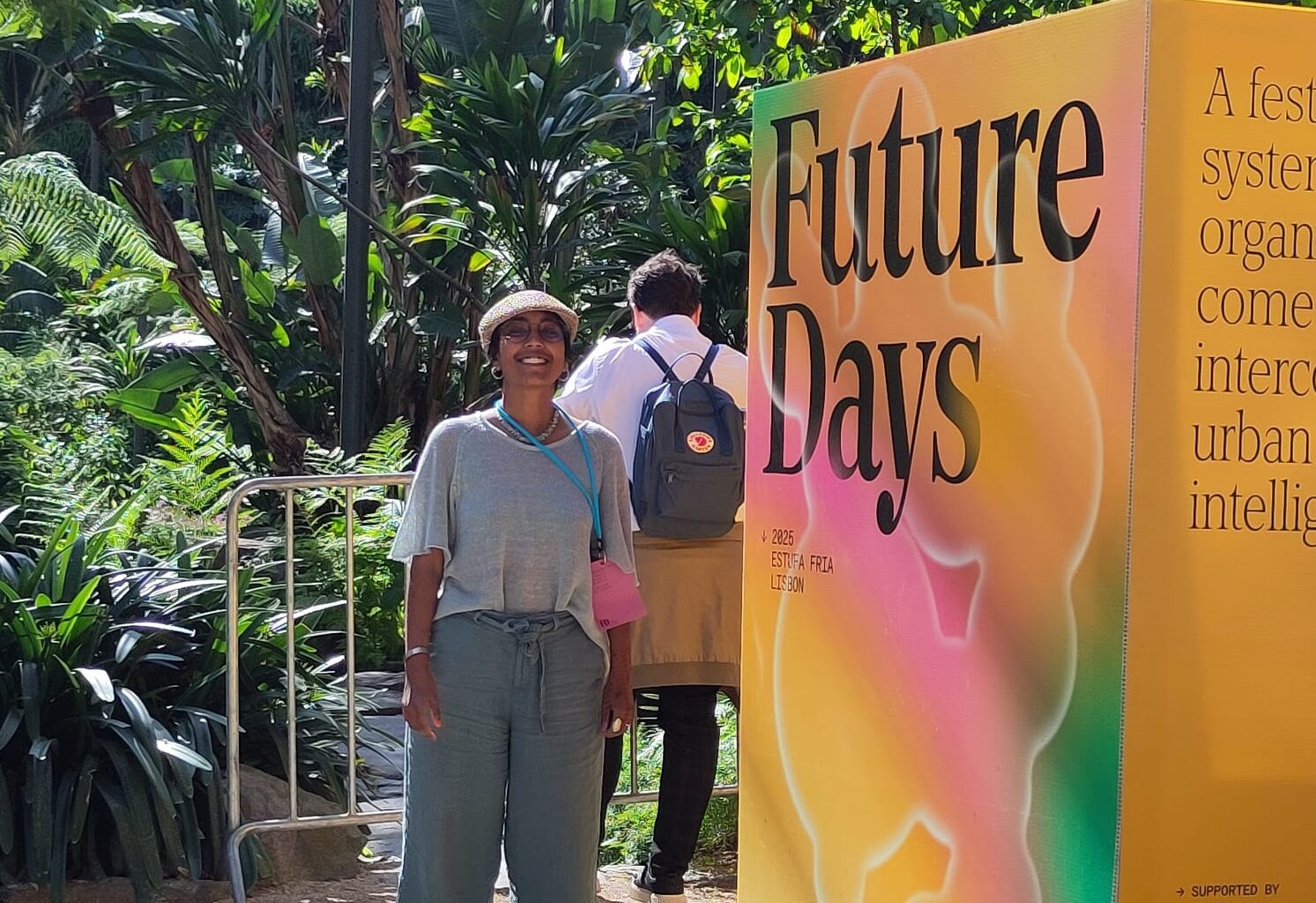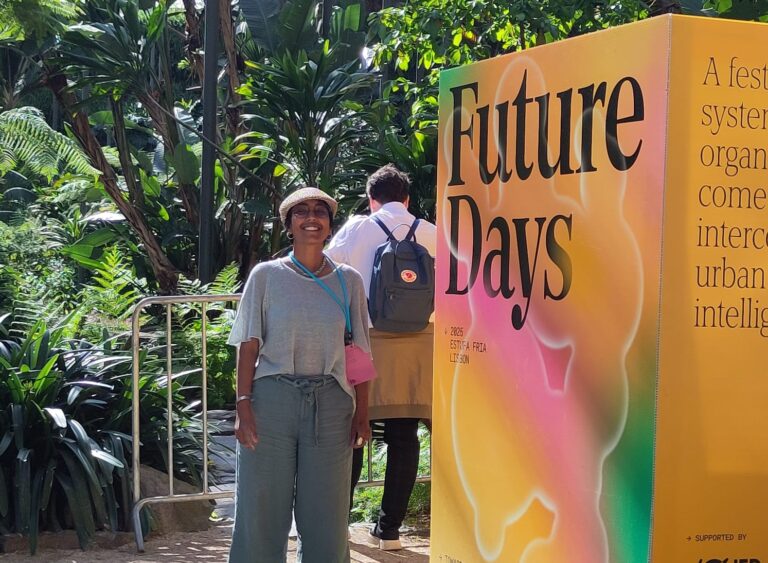I got the chance to attend a conference called Future Days in Lisbon. A couple of service designers in our SPACE4 network recommended it, and Outlandish was generous enough to send me to a mysteriously futuristic event in Portugal.
Calling it a conference feels like a misnomer, though. It was more like a festival for the imagination, set in the lush, dreamlike surroundings of Estufa Fria, a huge greenhouse right in the middle of the city. Imagine wandering between towering palms and glistening ferns while talking about speculative architecture and the end of the centralised energy grid (and/or the world), that’s the vibe.

This was my first deep dive into the world of Futures Studies, and I came away genuinely inspired. It’s a field that feels less about predicting the future and more about expanding what we can imagine. It felt refreshing to be in that space; it was the first conference I’ve attended in my role at Outlandish that was positive about the future. As a worker-owned cooperative in the UK leftwing space, most gatherings I go to are despondent, angry or critical – and rightly so. But it definitely affects your psychology and mental health. For a second during that conference, I felt excited about the future – not gonna lie, being in Lisbon definitely helped.
Don’t get me wrong, there were definitely lots of political and ethical blind spots that the conference didn’t address (specifically, I would say on the use of AI). And we were largely a bunch of middle-class Europe-based consultants, techies, and academics who the crises of the future will least affect. But (just this once) I let it go and focused on the bits that felt exciting and inspiring.
My favourite phrase from the festival was introduced by Simon Höher’s talk from Dark Matter Labs: the future is unthinkable. That is, the paradigms we’re currently in make it impossible to picture what change will look like. He invited us to ask ourselves how we might: sense the invisible, control the ungovernable, test the unplannable, and learn the unknowable. I have since loved thinking about not only the world’s future but also my personal and professional future through that lens.
In general, there was a brilliant mix of talks, installations, unconference spaces, and side events. A few highlights for me include:
- Lex Fefegha, a creative coder, gave a playful and sharp talk about AI and the limitations baked into the training data – how the biases of the past get projected into the future. He gave some examples, including his work on creating a Hip-Hop Poetry Bot.
- Gem Barton, lecturer at the Royal College of Art, spoke about “speculative spatial design” and queering space. She spoke about the concept of capriccios, fantastical architectural fantasies from the 17th and 19th centuries – I’ve been obsessed ever since.
- A project from PwC (with an anonymous NDA client?!) had created a magazine from the year 2030, featuring imagined stories about biotechnological dining, sentient plants, and new forms of community life. Surprisingly creative and quite funny. The articles were AI-generated.
- The Curiosity that Matters Podcast by Dark Matter Labs was probably my favourite format, an open panel with two empty chairs, “hot seats” that anyone could hop onto to create a discussion.
- One of the most captivating installations was an AI-generated animation of plants, complete with an immersive soundscape. Totally surreal.
- One morning, we began with a meditative session led by Monika Jiang, who helped to ground us in presence and allow us to interact more reflectively and personally with other people before we started the day.
- Finally, I was inspired by one of the Future Days Fellows, Brodie Weir, from Civic Square, who had been doing some really interesting research on the history of public land ownership in the UK and produced a pamphlet on the topic.
As someone who works on progressive tech, alternative business models, democratic governance, and place-making, I found it amazing to see the variety of design thinking practices and how they’re applied to many social problems. The designers, researchers, and strategists I met, many working as consultants on future-focused projects, gave me a lot to think about.

What struck me most was how casual it all felt. The event felt less like traditional “networking” and more like co-dreaming. In a world obsessed with productivity and planning, Future Days reminded me of the power of playful imagination. I’m excited that Outlandish is already partnering with future-oriented organisations, and I’m hoping we can bring some of these methods and thinking to SPACE4 and Outlandish soon.




